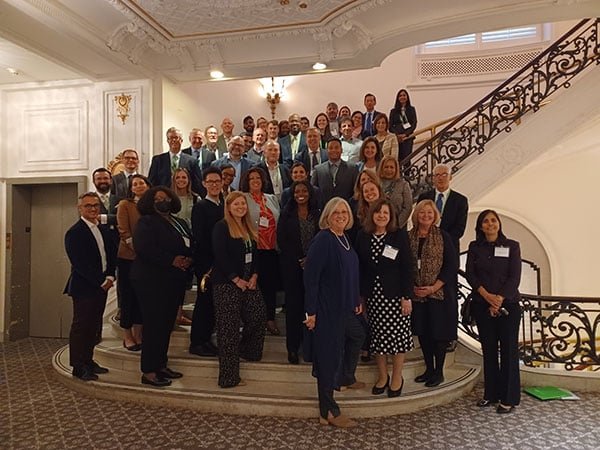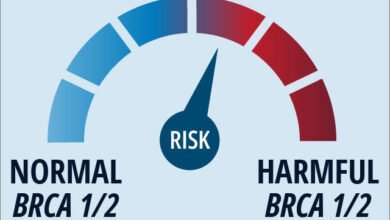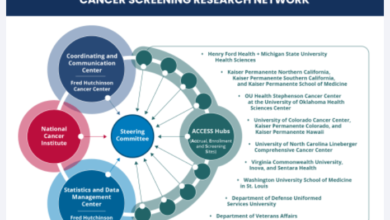Engaging Industry Partners to Strengthen Diversity in Cancer Research

Throughout his career as a cancer researcher, Robert A. Winn, MD, has seen a familiar pattern in progress. Each new advance—whether it be a new immunotherapy drug or a cutting-edge surgical technique—initially tends to widen disparities, as underserved populations cannot access the new treatment.
Winn, director of the VCU Massey Cancer Center, told attendees at the American Association for Cancer Research (AACR) Industry Roundtable, held this past fall, that combating the resulting disparities requires consistent, creative effort from all stakeholders in cancer research, from early-career scientists to the most senior researchers; from organizations like the AACR; and from the corporations that make and market lifesaving cancer treatments.
This message underpinned the AACR Industry Roundtable, which convened representatives from the world’s leading biopharmaceutical companies to discuss pressing topics in cancer science with AACR leaders, members of government entities like the National Cancer Institute (NCI) and U.S. Food and Drug Administration (FDA), and several pre-eminent cancer researchers.
The past few years have brought diversity, equity, and inclusion (DEI) initiatives to the forefront of many corporations and organizations. Many biopharmaceutical companies have hired DEI executives or launched task forces to improve efforts. Organizations like the AACR have created innovative grants and generated new reports on this crucial topic.
“The Roundtable provided an opportunity to connect and deeply discuss shared goals,” said Margaret Foti, PhD, MD (hc), chief executive officer of the AACR.
“Together, we have formed so many synergies over the years. This Roundtable provides us a wonderful opportunity to collaborate more fully and discuss the opportunities we have to help cancer patients everywhere,” Foti said. “Everything we do is for patients.”
Diversifying clinical trials for the benefit of all
The October gathering was the first in-person Industry Roundtable since the COVID-19 pandemic, and many speakers reflected on the way the pandemic reshaped health care, business practices, and awareness of global health.
The pharmaceutical industry brought COVID vaccines to market with unprecedented speed, helping transform the disease into a less lethal illness. However, as the vaccines rolled out, Winn observed a pattern he had seen many times in cancer care. Initially, Black Americans were less likely to receive COVID vaccinations, with experts citing lack of access and mistrust of medical professionals as probable reasons. This disparity narrowed over time, thanks in part to persistent community outreach, Winn said.
Now, he asserted, such community-based efforts should be extended to cancer care, including screening and enrollment in clinical trials. He encouraged the industry representatives to learn more about community navigation programs, possibly launching their own programs or funding existing programs in an effort to diversify clinical trial populations.
“What do our innovations mean if we are not deliberate about ensuring access for all?” he asked.
Fostering diversity in the scientific workforce
Another crucial building block in the effort to end health disparities is diversifying the scientific work force. As Winn discussed, people from underrepresented communities are more likely to seek health care and participate in clinical trials if they are encouraged by people from their own community.
Sanya A. Springfield, PhD, director of the NCI’s Center to Reduce Cancer Health Disparities, shared the history of the NCI’s Continuing Umbrella of Research Experiences (CURE) program, which she conceived in the late 1990s. CURE seeks to increase the number of cancer researchers from racial and ethnically diverse populations, as well as other underserved populations, and to support them in their academic and early research efforts to that they will become strong candidates for the coveted R01 research grants. To date, the CURE program has supported more than 4,000 students and early-career investigators—including renowned researchers like Winn.
In 2014, CURE launched a middle-school program, hoping to encourage younger students interested in science.
“No, not all of them will become cancer researchers, but some of them will,” Springfield said. “What’s more, they become gatekeepers in their communities. They learn about cancer preventive behaviors, and they tell their parents what they’re learning. They become educators in their community.”
AACR President Lisa M. Coussens, PhD, FAACR, echoed the importance of engaging students at an early age, and she urged the industry representatives to support mentorship, internship, and education programs.
“We need to attract students to STEM and then keep them in research,” Coussens said. “If we lose them, you lose them, too, and that’s not advantageous for either one of us.”
Coussens suggested multiple ways corporate partners can help ensure the diversity of the early-career workforce. For one, she said, “We have to up our level of support for summer internship programs. We should provide travel support, cover their housing costs … we need to do this so that our internship programs and other opportunities aren’t accessible only to privileged kids.”
Funding the next wave of cutting-edge research
Since 1993, the AACR’s grants program has awarded more than $540 million in grants to more than 3,400 scientists. At least 70 industry partners have helped fund these grants, noted Mitch Stoller, chief philanthropic officer of the AACR Foundation.
“We are grateful for everything you do and all the programs you help support,” Stoller told the industry representatives.
Yixian (John) Zhang, PhD, senior managing director of the AACR’s Scientific Review and Grants Administration, noted that AACR grants fund all stages of research, from basic research to preclinical and clinical development. He acknowledged the unrelenting need for more support in the quest to prevent and cure all cancers, saying, “More money, more research, more discovery, and more treatments will lead to less suffering from patients.”
Continued Partnership Between the AACR and Industry
The Industry Roundtable is a principal event in the AACR’s Sustaining Membership program, which provides a means for corporations to support the mission of the organization and to engage with the greater cancer research community. Recognizing the important role of industry in translating basic findings into new medicines for patients, the AACR aims to engage deeply with life sciences companies through this program and to build a robust ecosystem that supports scientific advances with the potential to prevent and cure cancer.
Source link
#Engaging #Industry #Partners #Strengthen #Diversity #Cancer #Research



